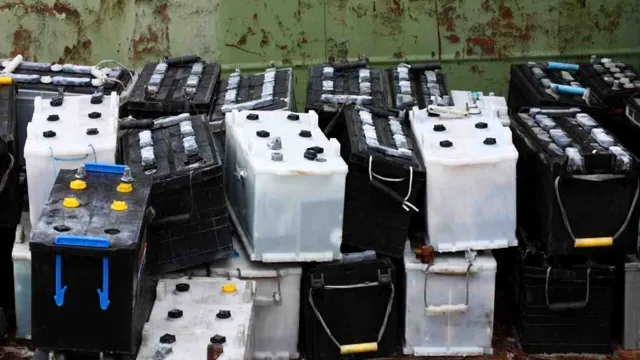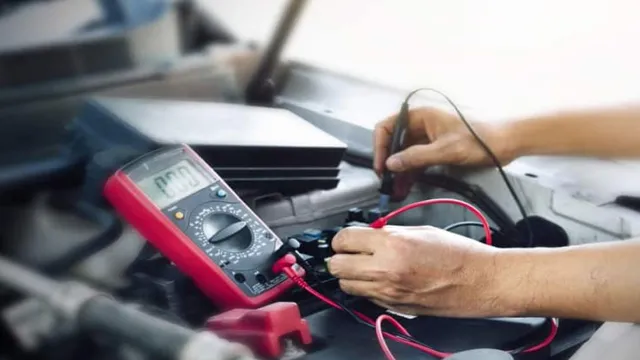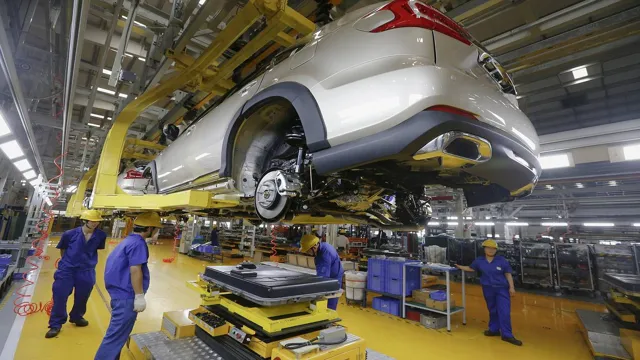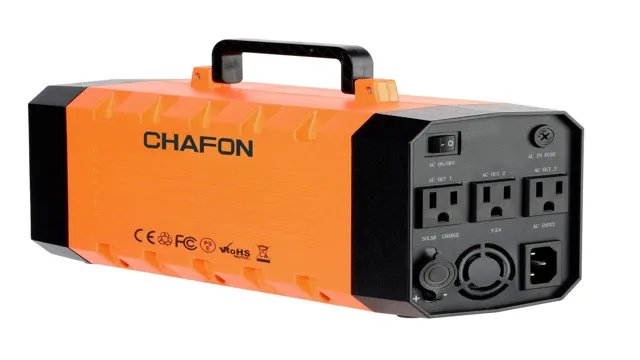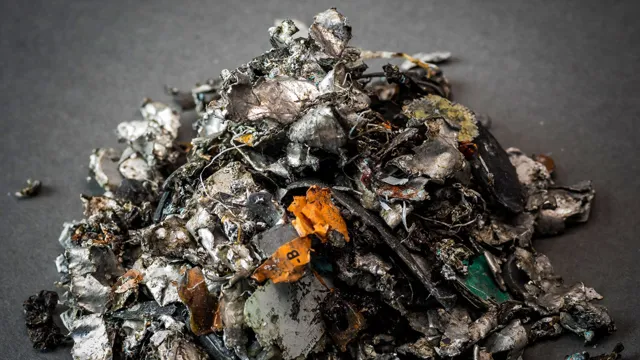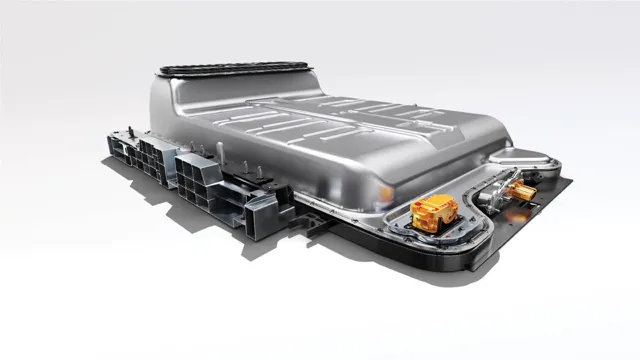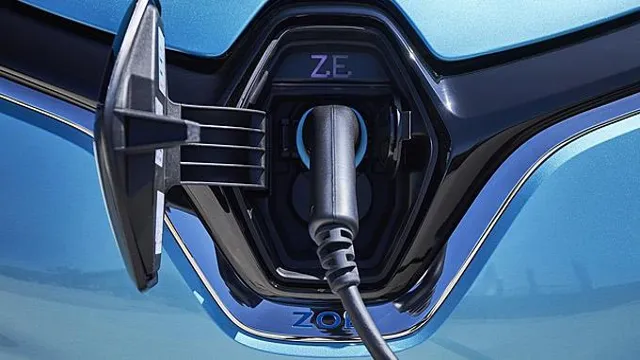Eco-Friendly Solutions: How to Responsibly Dispose of Batteries in Electric Cars
As electric cars become increasingly prevalent, there has been growing concern about the proper disposal of their batteries. Unlike conventional cars, which contain lead-acid batteries that are easily recyclable, electric car batteries contain expensive metals and chemicals that make disposal a more complicated process. This has led many to wonder, what happens to electric car batteries when they reach the end of their lifespan? In this blog, we will explore the various methods for battery disposal for electric cars and their impact on the environment.
Join us as we delve into this important topic and discover how we can ensure a sustainable future for our planet.
Environmental Impact of Batteries
When it comes to the topic of electric cars, many people often wonder about the environmental impact of the batteries. While electric cars do produce less emissions than traditional gas-powered vehicles, the disposal of the batteries can pose a significant environmental concern. The batteries used in electric cars contain materials such as lithium, cobalt, and nickel, which can be harmful if not disposed of properly.
These materials can seep into the soil and water, contaminating the environment and posing a risk to wildlife and humans alike. It’s important to note, however, that the recycling and reuse of these batteries can greatly mitigate their environmental impact. So, while the disposal of battery waste does pose a challenge, efforts to properly recycle and repurpose these materials can help reduce the overall impact on the environment.
Data on Battery Waste
Battery waste has significant environmental impacts that affect our ecosystem. Batteries contain toxic chemicals, such as lead, lithium, and cadmium, which can contaminate soil and water when not disposed of properly. The production of batteries also leads to the generation of greenhouse gases that contribute to climate change.
When batteries end up in landfills, they can take hundreds of years to decompose, which further exacerbates their environmental impact. With the increasing demand for batteries due to the rise of electric vehicles and smartphones, it’s crucial that we properly dispose of and recycle batteries to minimize their ecological impact. By taking part in local battery recycling programs and choosing energy-efficient products, we can all play a role in preserving our environment and reducing battery waste.
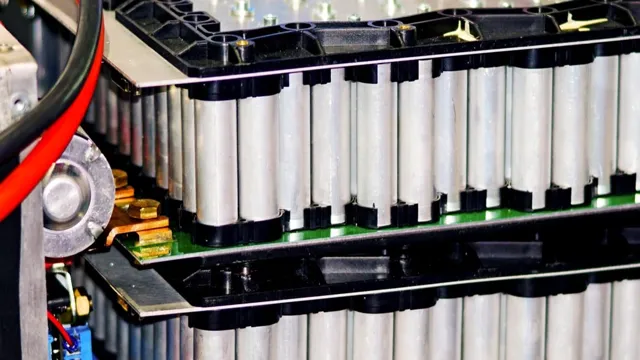
Effects on Landfills and Water Sources
Batteries have become an integral part of modern life as they power our electronic devices and vehicles. However, the environmental impact of batteries cannot be ignored. When batteries aren’t disposed of properly, they end up in landfills where they can release toxic chemicals.
These chemicals can harm the soil and nearby water sources, contaminating them with metals such as cadmium, lead, and mercury. This contamination can ultimately harm plants, wildlife, and even humans who consume the affected water. Additionally, the mining of materials used in batteries can lead to deforestation, soil erosion, and other environmental issues.
It’s important to recycle or properly dispose of batteries to minimize their impact on the environment. By doing so, we can ensure that our limited natural resources are conserved and protected for future generations.
Options for Battery Disposal
When it comes to electric cars, battery disposal is an important consideration. Old electric car batteries cannot simply be thrown away in the trash, as they contain toxic chemicals that can harm the environment. However, there are several options for battery disposal that can help to reduce the impact of electric car battery waste.
One option is to recycle the battery. Many companies specialize in the recycling of electric car batteries, which can be broken down into their component parts and reused to create new batteries. Another option is to repurpose the battery.
Some companies are experimenting with using old electric car batteries to store energy from renewable sources like solar and wind power. This can help to extend the life of the battery and reduce waste. Whatever the method, it is important for electric car owners to responsibly dispose of their batteries to ensure a cleaner, healthier environment for everyone.
Recycling and Repurposing Batteries
When it’s time to dispose of batteries, there are several options to consider. One of the best ways to reduce waste is to recycle them. Recycling centers can safely extract valuable materials from batteries, such as nickel and cobalt, which can be used to make new batteries or other products.
Some retailers even offer collection bins for recycling old batteries. Another option is to repurpose batteries. While batteries may no longer hold enough charge to power devices, they can still be used for other purposes.
For example, old batteries can be used as a power source for smaller items like remote controls or flashlights. When disposing of batteries, it’s important to do so responsibly to reduce the amount of harmful chemicals that end up in landfills. Trustworthy recycling centers ensure batteries are safely disposed of in an eco-friendly manner, minimizing the impact on the environment.
Battery Decommissioning Services
When it comes to battery decommissioning services, there are multiple options for the disposal of batteries. One method is recycling, where batteries are broken down into their components and reused. Another option is incineration, where the batteries are burned at high temperatures to generate energy.
However, it’s important to note that not all batteries can be recycled or incinerated. Some batteries, such as lithium-ion, require more specialized methods of disposal due to their hazardous nature. So, it’s important to research and find a reputable battery decommissioning service that can handle all types of batteries safely and responsibly.
Ultimately, choosing the right battery disposal method can help reduce environmental impact and ensure the safety of our communities.
Trade-In Programs for Electric Cars
As electric cars become a more popular option for eco-conscious consumers, the question of battery disposal becomes more pressing. Fortunately, many automakers are introducing trade-in programs to help incentivize people to dispose of their batteries properly. These programs not only help the environment, but they also allow for valuable materials to be recycled and reused.
Companies like Tesla and Nissan offer buyback programs for their batteries, while others like BMW and Audi have partnered with third-party companies to handle the recycling process. It’s important to note that not all trade-in programs are created equal, so it’s worth doing some research to find the best option for your specific electric car and battery. Ultimately, trade-in programs for electric cars make battery disposal easier, more efficient, and more environmentally friendly.
Future Innovations in Battery Disposal
When it comes to the future of electric cars, battery disposal is a major concern. However, innovative solutions are already being developed to tackle this issue. One such innovation is the use of recycled batteries to store energy for homes and businesses.
Instead of disposing of used batteries, they can be repurposed for a new and sustainable function. Additionally, there are efforts to develop batteries that are easier to recycle and have a longer lifespan. For example, researchers are exploring the use of solid-state batteries, which are safer and more environmentally friendly than current lithium-ion batteries.
With these advancements, the future of battery disposal for electric cars looks promising.
New Battery Technologies
As technological advancements continue to be made, new battery technologies are emerging that have the potential to revolutionize how we dispose of batteries. Battery disposal has long been a complicated and environmentally hazardous process, with traditional batteries often ending up in landfills and causing pollution. However, new battery technologies such as solid-state batteries and flow batteries offer the promise of longer-lasting, more efficient batteries that can be easily recycled or safely disposed of.
These new batteries could revolutionize the way we power our devices and vehicles, while also reducing our impact on the environment. As we continue to explore the possibilities of new battery technologies, it is clear that the future of battery disposal is bright.
Electric Car Manufacturers’ Initiatives
Electric car manufacturers are leading the way in sustainable technology, and battery disposal is an issue that they are currently working to improve. In the near future, we may see more innovative solutions for battery end-of-life management, such as recycling and repurposing. Lithium-ion batteries can be recycled, and some manufacturers are already implementing closed-loop recycling processes to ensure that they are not wasted.
Additionally, old batteries could potentially be given a second life as energy storage systems for homes and buildings. As consumers become more eco-conscious and demand sustainable solutions, electric car manufacturers will likely continue to prioritize environmental initiatives like battery disposal. By taking steps to minimize waste and conserve resources, electric car manufacturers help ensure that the Earth is a healthy place to live for generations to come.
Conclusion and Next Steps
Now that we’ve explored the ins and outs of battery disposal for electric cars, it’s clear that we can’t simply toss these power-packed components in the trash. With their potential to leak harmful chemicals and pollute our environment, responsible and eco-conscious disposal should be a top priority. But fear not, with proper recycling and repurposing efforts, we can give these batteries a second life and prevent them from becoming electronics graveyard rejects.
So let’s give a charge to our green initiative and power up our planet with responsible battery disposal!”
FAQs
What is the proper way to dispose of the batteries in an electric car?
The batteries in an electric car should be recycled at a certified battery recycling facility.
Are there any safety concerns when disposing of electric car batteries?
Yes, electric car batteries contain hazardous materials and should be handled with care. It is important to follow proper disposal procedures to ensure safety.
Can electric car batteries be reused or repurposed after they have been disposed of?
In some cases, electric car batteries can be repurposed for home energy storage or recycled for use in other industries.
How often do electric car batteries need to be replaced, and what happens to the old batteries?
Electric car batteries typically need to be replaced every 5-8 years. Once replaced, the old batteries should be recycled at a certified battery recycling facility.
